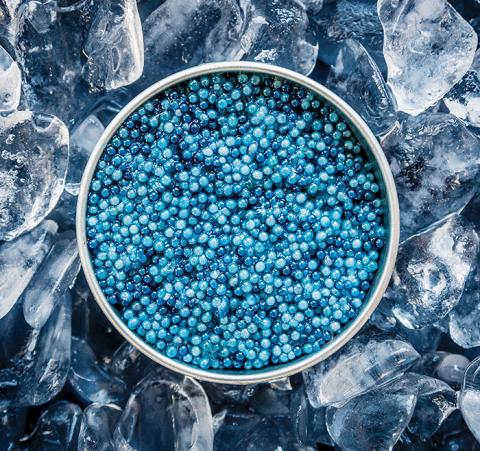
Shark Bay Seafood’s Wild Scampi Caviar, from WA, is one of the new seafoods Platinum Provedore promoted to chefs.
Photo: James Barnes Destination Food
By Rebecca Thyer
Fish-X ‘micro-hack’ participants came together in Brisbane in February for a two-day, hands-on workshop. The aim was to show participants how to apply the ‘Lean Start-up’ method: a disciplined, entrepreneurial approach to exploring and de-risking existing and new business models.
The experience involves one session on the methodology, followed by three sessions conducting customer interviews, live-market-testing new ideas for growth to understand risk and value, and pitching new value propositions to other participants and invited guests.
A deliberately diverse group of businesspeople – ranging from commercial fishers to oyster farmers, seaweed processors and an e-sports entrepreneur – shared their knowledge and practice-pitched their products and businesses, gathering feedback as well as exposure to different parts of the fisheries value chain.
Participants
Ewan McAsh
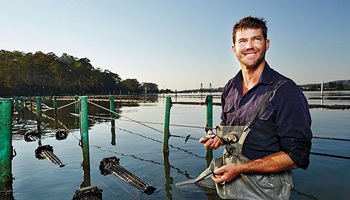 Ewan McAsh
Ewan McAsh Photo: Signature Oysters
SmartOysters and Signature Oysters
In November 2017, Ewan McAsh attended a micro-hack and joined the subsequent three-month accelerator program for his SmartOysters digital farm-management platform. He then attended the February micro-hack representing Signature Oysters, the marketing arm for his farmed oysters.
He says being involved with Fish-X had been so helpful for his SmartOysters platform that he wanted to take Signature Oysters through the process too.
Ewan McAsh says the weekly coaching he has received through the accelerator program has kept SmartOysters moving forward. “It’s stopped us from making serious mistakes, the common pitfalls that new businesses often find.”
The program has also made him think bigger. “It is hard work, so why not take my ideas and product to the world? Why not consider a $10 million business instead of a $1 million business?”
He says having ‘fresh eyes’ looking at his business has also really helped and has made him feel more in control of it and the future.
Jo Lane
Sea Health Products
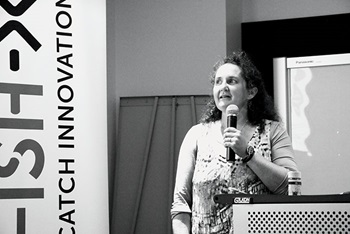 Jo Lane
Jo Lane 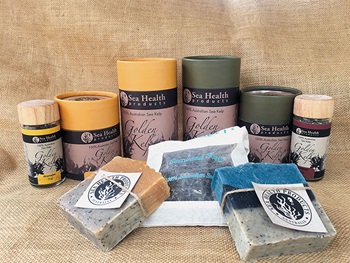 The bath range by Sea Health Products.
The bath range by Sea Health Products.Photo: Sea Health Products
Former marine biologist Jo Lane says the February micro-hack has helped to clarify the direction of her business Sea Health Products, which hand-harvests, sun-dries and processes Golden Kelp health products such as Golden Kelp granules, smoked granules and powder, as well as a range of bath products.
“It helped me see the bigger picture,” she says. “As a small business owner I do everything – from harvesting the kelp to processing it, packaging it and sending it off at the post office. The micro-hack really allowed me to clarify my direction and think about where I want the business to go.”
Jo Lane says she also found it valuable to talk to other people in the industry. “Although we all do different things, there was a real commonality of experience.”
Her goal is to make kelp more prominent in consumers’ pantries. “I want Australians to start using it and to follow the lead of other countries to really develop this new and emerging industry.
“The way forward is kelp farming – this would allow the kelp to be grown at scale; I can only collect so much.”
More information
Umar Nguyen
Platinum Provedore
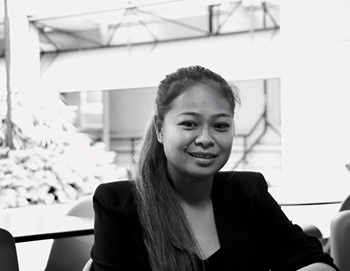 Umar Nguyen
Umar Nguyen Umar Nguyen is the former chef behind Platinum Provedore, a business that links fishers and top chefs, providing a route to market for secondary or bycatch species.
She says she took an open mind to the workshop and found it “a very safe, welcoming and comfortable environment to talk in”.
The workshop helped her to understand her business better. “In a way I was stuck and confused, and it helped me to think about where I wanted to be and how to get there. I am more open to change than before.”
She uses Instagram and text messaging to communicate with chefs, offering new seafood to try as a way of establishing new markets for different seafood products.
Feedback on her images and communication methods has been positive, with chefs keen to try new product offerings.
Tomaj Bayat
CrewCare
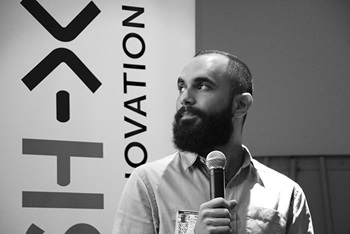 Tomaj Bayat
Tomaj BayatTomaj Bayat is behind CrewCare, a real-time, automated, safety risk-assessment (SRA) tool for those who work on boats. His participation in the Fish-X micro-hack allowed him to workshop its use in the fishing sector.
He is interested in using entrepreneurship and technology to solve problems, and says the micro-hack was invaluable for connecting him to fishers and the industry. He says Fish-X participants were very generous with their time.
“I completed a program called ‘Hacking 4 Defence Australia’ with X-Lab before Fish-X and I was hoping to find out if CrewCare could help improve safety in the fishing sector too.
“My next steps are to understand fishers’ safety problems in more depth. I need to discover who can benefit from CrewCare.”
Stefan Sawynok
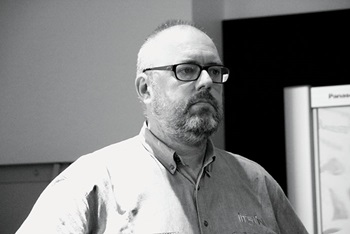 Stefan Sawynok
Stefan SawynokInfofish Australia
Part of the recreational fishing industry, Stefan Sawynok brought his F1 e-sports fishing concept to the micro-hack, and has since used the lessons from the event across all aspects of his family business, Infofish Australia.
His F1 idea aims to revolutionise how fishers compete in fishing tournaments, enabling them to build a global profile and network.
A knockout competition, events would target ‘T-20 fishers’ (the top 20 per cent), who care deeply about the sport, and who would be happy to pay to compete with other recreational fishers around the world and to access the technology platform that will allow them to do just that.
“The ‘hackathon’ did not change my thinking but it did help me focus. For example, the entrepreneurial process – who is the client, what is the opportunity, what is the evidence around it, and ultimately, are you really delivering what you said you would – is an approach I’ve now taken across our businesses.”
More information
Neil Moretto
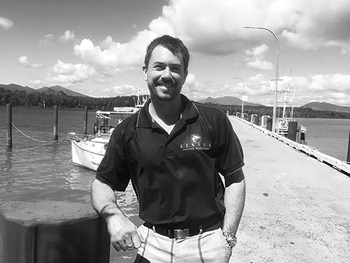 Neil Moretto
Neil MorettoLenrex Seafood Marketers
Neil Moretto is in the Fish-X Accelerator program following the November 2017 micro-hack. He attended the February event to outline his experience of both the hackathon and as an accelerator participant.
The managing director of Lenrex Seafood Marketers, Neil Moretto says Fish-X has given him the focus he needs to further develop his idea – to restore wild-caught Barramundi’s premium status among chefs.
He says wild-caught Barramundi has “lost its way and identity”.
And this is what he plans to change. “We are looking to provide the market with the most viable product (in terms of product portioning and packaging) that will add value back to their business and in doing so provide this value back to the fishers.
“For me, the resources have been invaluable. It has extended my team to include people I would not normally have at my disposal. From here my idea has exploded, taking on new directions. I can see clearly that this has ‘accelerated’ my concept to a point that it is set to become a tangible thing, in the not-so-distant future.”





